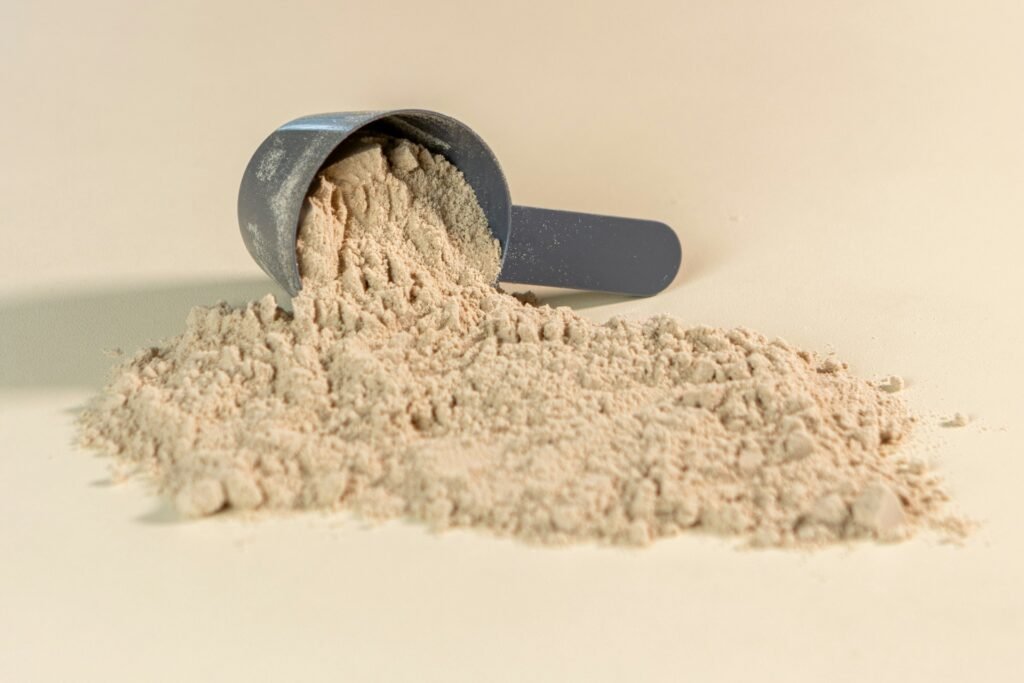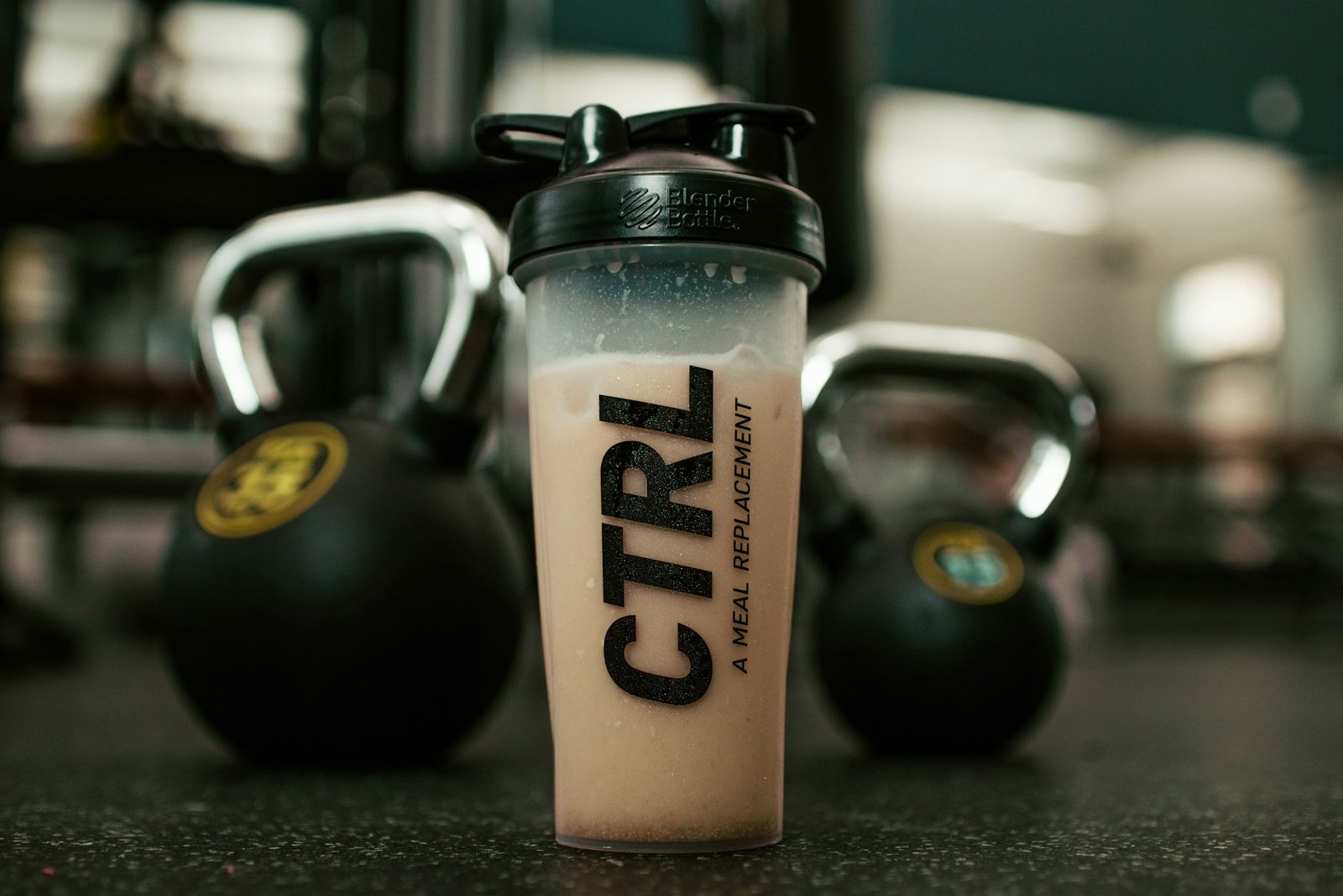When it comes to building muscle, supporting recovery, and improving overall health, protein plays a crucial role. But with so many options on the market, it can be confusing to decide whether whey protein or plant-based protein is right for you. Both have their unique benefits and potential drawbacks, and the best choice often comes down to your individual needs, lifestyle, and dietary preferences. In this guide, we’ll explore Whey protein vs plant based protein and the science, benefits, and practical considerations for choosing the right protein supplement.
Disclosure: We may earn a commission from links mentioned in this post, at no extra cost to you. We only recommend products we genuinely trust
Table of Contents
Why Protein Matters

Protein is essential for a wide range of functions in the body. Beyond muscle growth and repair, it plays a role in hormone production, immune function, and bone health. In terms of muscle development, protein stimulates muscle protein synthesis (MPS)—the process by which your body uses amino acids to create new muscle tissue. MPS is triggered through both exercise and protein intake, which is why having an adequate protein source is critical for anyone following a home fitness routine or resistance training program.
To maximize muscle growth, combining the right protein with supplements like creatine can be highly effective—learn more in our Creatine monohydrate vs micronized creatine: Which is the Best Creatine Supplement?
Understanding Whey Protein
Whey protein is derived from milk and is considered a complete protein, meaning it contains all nine essential amino acids required for optimal muscle growth. It is particularly high in leucine, an amino acid that directly stimulates MPS. This makes whey protein one of the most effective supplements for building lean muscle mass.
One of the key advantages of whey protein is its rapid digestion. It is absorbed quickly by the body, which allows amino acids to reach your muscles efficiently, especially post-workout. Research consistently shows that whey protein promotes greater gains in lean body mass compared to lower doses of plant-based protein in resistance training studies.
Pricing: Whey Protein vs Plant Based Protein
When choosing a protein supplement for your home fitness routine, cost is an important factor to consider. Whey protein is often slightly more expensive per serving than some plant-based options, especially if you opt for high-quality isolates. Prices can range anywhere from $0.80 to $2 per scoop, depending on the brand, protein type (concentrate vs. isolate), and flavoring. Premium whey products may also include added benefits like digestive enzymes or immune-supporting compounds, which can increase the price.
Plant-based protein powders vary widely in price as well. Single-source powders like pea or rice protein are usually more affordable, while blended or fortified products that provide a complete amino acid profile can cost similar to or even slightly more than whey. On average, expect to pay between $1 and $2 per scoop for high-quality plant protein.
When comparing the two, consider value beyond cost: factors like protein content per scoop, amino acid profile, digestibility, and added nutrients may justify a higher price. Many home fitness enthusiasts find that investing in a quality protein powder—whether whey or plant-based—supports better results in muscle growth, recovery, and overall health.
Potential Downsides: Whey protein vs plant based protein
While whey protein is highly effective, it’s not suitable for everyone. Individuals who are lactose intolerant or have dairy sensitivities may experience digestive issues, ranging from bloating and gas to skin reactions and brain fog. Additionally, some people with insulin resistance may need to monitor whey intake, as it can influence blood sugar levels.
Plant-Based Protein: Benefits and Considerations
Plant-based protein powders have surged in popularity, especially among those following vegan diets or seeking a more environmentally friendly option. Common sources include pea, rice, soy, hemp, and blends that combine multiple plants to create a complete amino acid profile. Combining proteins like pea and rice ensures that all essential amino acids, including lysine, methionine, and leucine, are present to support muscle growth.
One major benefit of plant protein is digestibility for those with dairy sensitivities. It also provides additional nutrients such as fiber and phytonutrients, which support overall health. However, some plant proteins naturally have lower leucine levels, meaning you may need slightly higher doses to achieve the same MPS effect as whey. Isolates and protein blends can help overcome this, making them nearly as effective as whey when used in sufficient amounts.
Potential Challenges

Despite their benefits, plant-based proteins can come with challenges. Certain anti-nutrients in plants, such as phytic acid and lectins, may reduce nutrient absorption. Additionally, some studies have shown that plant-based powders may contain higher levels of heavy metals like lead and cadmium, especially in flavored or organic varieties. Choosing high-quality, third-party tested products is essential to minimize these risks.
Comparing Muscle-Building Potential
Studies consistently highlight that whey protein is superior in stimulating MPS at standard serving sizes (around 20 grams). However, research also shows that consuming larger amounts of plant-based protein or combining multiple sources can achieve similar results. For instance, a study comparing higher doses of soy or rice protein with whey found no significant difference in muscle growth after a few months of resistance training.
The key takeaway is that quantity and quality matter. For muscle-building purposes, aim for around 1.6 to 2 grams of protein per kilogram of body weight per day, spread across multiple meals. Both whey and plant-based protein powders can help you reach these goals, especially when whole food sources are limited or inconvenient.
Want to explore other protein sources that support overall health, including joints, skin, and connective tissue? You can read more in our Marine Collagen vs. Bovine Collagen – Which is the Best Collagen Supplement?
Digestive and Health Considerations
Choosing between whey and plant protein also depends on how your body tolerates them. Whey is excellent for those without dairy issues, but plant proteins may be better for individuals with digestive sensitivities. Additionally, plant proteins tend to be lower in saturated fat and are more environmentally sustainable, producing fewer greenhouse gas emissions per gram of protein.
For those concerned about contaminants, always select high-quality brands that undergo rigorous testing. Reading labels carefully helps avoid unnecessary additives like artificial sweeteners, fillers, or sugar alcohols, which can affect digestion and overall health.
Practical Tips for Home Fitness Enthusiasts
- Post-Workout Recovery: Whey protein’s fast absorption makes it ideal for post-workout shakes.
- Digestive Sensitivities: If you experience bloating or discomfort with dairy, plant-based protein may be preferable.
- Blending Proteins: Combining whey and plant protein can offer a wider range of amino acids and nutrients.
- Daily Protein Goals: Use protein powders to supplement whole food sources, ensuring you meet your daily protein requirements.
- Avoid Protein Bars for Daily Intake: While convenient, many bars contain excess sugar, fillers, and low-quality protein. Shakes are typically a cleaner option.
Environmental and Ethical Considerations
Some individuals choose plant-based proteins for sustainability or ethical reasons. Even processed plant protein isolates typically require less land, water, and energy compared to animal-derived proteins. This makes plant-based powders an appealing option for environmentally conscious athletes.
Conclusion
Both whey protein and plant-based protein powders have their place in a well-rounded home fitness nutrition plan. Whey protein stands out for its amino acid profile, rapid digestion, and ability to stimulate muscle protein synthesis efficiently. Plant-based protein offers an alternative for those with dietary restrictions, digestive sensitivities, or ethical concerns, and when used correctly, it can support muscle growth just as effectively.
Ultimately, the best choice depends on your personal health, tolerance, and fitness goals. By prioritizing high-quality protein sources, meeting your daily protein requirements, and considering your individual needs, you can effectively support muscle growth, recovery, and overall wellness—whether you choose whey, plant-based, or a combination of both.









Pingback: Anabolic Mass Gainer: The Ultimate Muscle-Building Hack